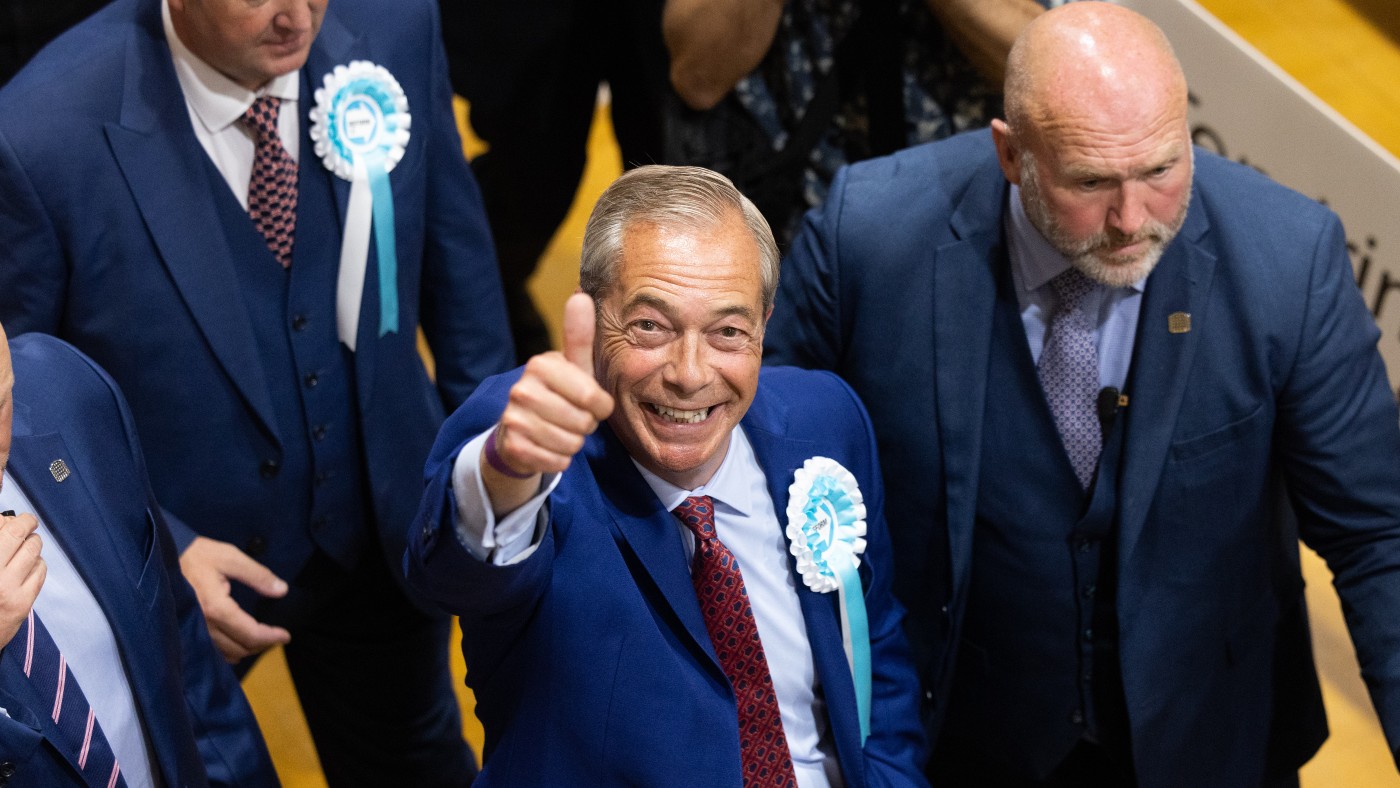Reform on the rise: can smaller parties reshape British politics?
Reform, Greens and independents hope to shape Starmer's policy but can they go even further?

A free daily email with the biggest news stories of the day – and the best features from TheWeek.com
You are now subscribed
Your newsletter sign-up was successful
Labour's landslide win is the big story of the general election, but there were historic gains for Reform UK and the Greens, and victories by pro-Gaza independent candidates.
Speaking after winning in Clacton-on-Sea, Reform leader Nigel Farage said he plans to "build a mass national movement over the course of the next few years", and "hopefully it'll be big enough to challenge the general election properly" in 2029.
'Fox in the henhouse'
Reform came second in more than 100 seats, suggesting it could become "even more of a force at future elections", said Politico. Speaking to Sky News, the party's deputy leader David Bull said that, by 2029, "you'll see Nigel as prime minister".
The Week
Escape your echo chamber. Get the facts behind the news, plus analysis from multiple perspectives.

Sign up for The Week's Free Newsletters
From our morning news briefing to a weekly Good News Newsletter, get the best of The Week delivered directly to your inbox.
From our morning news briefing to a weekly Good News Newsletter, get the best of The Week delivered directly to your inbox.
With Reform in such ebullient form, the Tories must "decide what to do about Mr Farage and his insurgent party", said The Economist. "Put simply," Farage "must be buried or bedded".
But "judging by the amount of votes won by Reform", the "mob will not happily return to the Tories". Although the two parties have much in common, the "narcissism of small differences is often the hardest to overcome".
Farage will be "emboldened to replace, rather than seek a pact with" the Conservatives, said Robert Shrimsley in the Financial Times. His plan is to "destroy the Tories by poaching much of their vote", then "replace – or take over – the party’s remnants", said The New York Times.
At the eighth attempt, Farage has finally become an MP, so now the "fox is in the henhouse", said the former Ukip MEP Patrick O'Flynn in The Telegraph. His party is "about to tear the cosy Westminster clique to shreds".
A free daily email with the biggest news stories of the day – and the best features from TheWeek.com
Not only does he have "democratic legitimacy and a media platform as an MP", but Reform now "qualifies for a small fortune in Short Money with which to bankroll a professional party machine". So there is "every reason to believe" that Farage can successfully gun for Labour next.
British politics is "about to change utterly", said Shrimsley. Thanks to the success of Reform, there will "suddenly be many Labour MPs looking at the threat from the nationalist right" and this "may well check some progressive instincts".
'Shape government policy'
But the threat to Labour might not just be coming from the right.
Gaza has cost Labour at least five seats, said Isabel Hardman in The Spectator. So the success of those independent candidates might "shape UK government policy" because Starmer will "have to decide" what to do about Israel and "whether to change the current arms exports licensing regime".
Meanwhile, the new Green MP for Brighton Pavilion, Siân Berry, said that her party will be looking to influence Starmer on climate. "We've got a change of government," she told the i news site, but "that doesn't change very much unless we can get some of the ideas in our manifesto into Labour's programme", so "that's what we're working on".
Although the first-past-the-post electoral system favours the big two, the rise of the smaller parties shows that they can significantly influence the fortunes of Labour and the Conservatives. Whether Farage can go further than that and challenge for the top job remains to be seen.
Chas Newkey-Burden has been part of The Week Digital team for more than a decade and a journalist for 25 years, starting out on the irreverent football weekly 90 Minutes, before moving to lifestyle magazines Loaded and Attitude. He was a columnist for The Big Issue and landed a world exclusive with David Beckham that became the weekly magazine’s bestselling issue. He now writes regularly for The Guardian, The Telegraph, The Independent, Metro, FourFourTwo and the i new site. He is also the author of a number of non-fiction books.